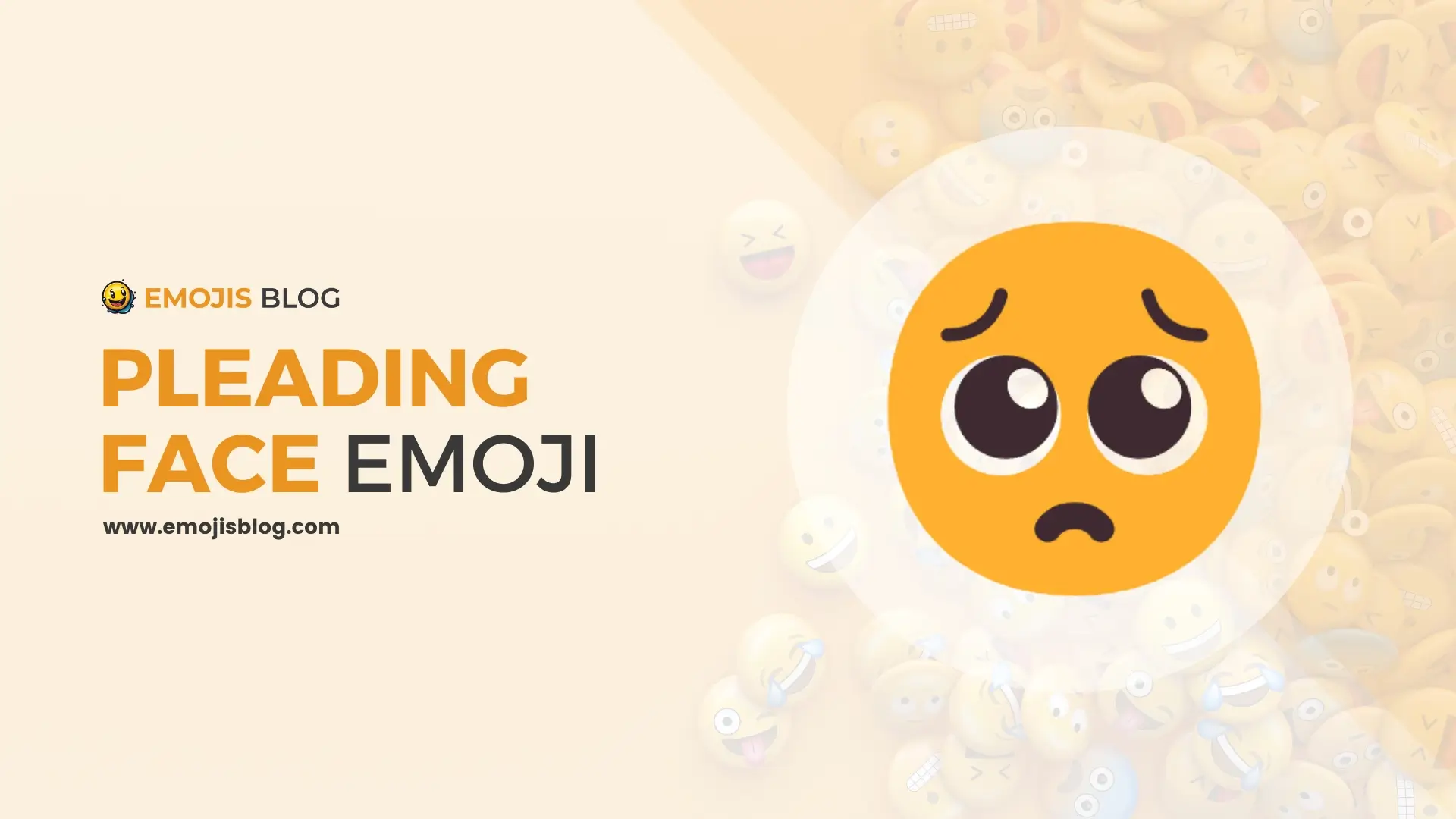What Does The Pleading Face Emoji Mean 🥺
🥺
What Does The Pleading Face Emoji Mean 🥺
The 🥺 emoji, also known as the Pleading Face emoji, depicts a yellow face with large, wide-set eyes, downturned mouth, and slightly furrowed eyebrows. It conveys a range of emotions, including pleading, begging, adoration, guilt, sadness, fear, cuteness, and playfulness.
Technical Information
| Attribute | Description |
|---|---|
| Emoji | 🥺 |
| Name | Pleading Face |
| Unicode Version | Unicode 11.0 (2018) |
| Code Point | U+1F97A |
| HTML Entity | 🥺 |
| Shortcode | :pleading_face: (on various platforms) |
| Category | Smileys & Emotion |
| Subcategory | Face Concerned |
| Keywords | face, pleading, begging, puppy eyes |
Decoding the Nuances of the 🥺 Emoji: A Plea for Understanding
In the ever-evolving world of digital communication, emojis have become ubiquitous, adding a layer of emotion and expression to our online interactions. Among the vast array of these pictorial symbols, the 🥺 emoji stands out for its unique blend of vulnerability and pleading, capturing a range of sentiments that transcend mere words.
The Pleading Face: A Face of Emotions
The 🥺 emoji, officially known as the “Pleading Face,” depicts a yellow face with large, wide-set eyes, downturned mouth, and slightly furrowed eyebrows. This combination of features evokes a sense of vulnerability, innocence, and a hint of sadness, making it a versatile tool for conveying a variety of emotions.
Begging and Beseeching: The Core Meaning
At its core, the 🥺 emoji is used to express a plea or appeal. It’s the face you make when you’re asking for forgiveness, seeking a favor, or trying to convince someone to see things your way. The large, pleading eyes and slightly downturned mouth convey a sense of helplessness and longing, making it a powerful tool for eliciting sympathy and understanding.
Beyond Pleading: A Spectrum of Emotions
While pleading is the primary function of the 🥺 emoji, its usage extends beyond this core meaning. It can also be used to express a range of other emotions, including:
- Adoration: The large, wide eyes can also convey admiration or adoration, particularly when used in conjunction with heart emojis or other expressions of love.
- Guilt: The downturned mouth and slightly furrowed eyebrows can also suggest feelings of guilt or remorse, as if the person is trying to express their regretful state.
- Sadness: The slight sadness in the eyes can also be interpreted as a more subtle form of sadness, such as feeling hurt or disappointed.
- Fear: In some cases, the 🥺 emoji can be used to convey a sense of fear or apprehension, as if the person is trying to express their nervousness or anxiety.
- Cuteness and Playfulness: The combination of big eyes and a slightly downturned mouth can also be used to express cuteness and playfulness, particularly when used in a lighthearted or joking manner.
The 🥺 emoji in Context: Understanding its Nuances
The interpretation of the 🥺 emoji is highly dependent on the context in which it is used. For instance, if it appears in a message requesting a favor, it clearly conveys a plea. However, if it’s used in a response to a compliment, it might express adoration or gratitude.
Examples of How to Use the 🥺 Emoji
Here are a few examples of how to use the 🥺 emoji in different contexts:
- “Please forgive me for my mistake.”
- “I’m so sorry I forgot your birthday.”
- “Can you please do me a favor?”
- “I love you so much!”
- “You’re the cutest thing ever!”
- “I’m so nervous about my presentation.”
Conclusion: A Versatile Tool for Emotional Expression
The 🥺 emoji is a versatile and nuanced tool that can be used to express a variety of emotions, ranging from pleading and begging to adoration and cuteness. Its popularity stems from its ability to convey a sense of vulnerability and sincerity, making it a powerful way to connect with others in the digital realm. As we continue to navigate the ever-evolving landscape of online communication, the 🥺 emoji is sure to remain a valuable tool for expressing our emotions and fostering meaningful connections.

